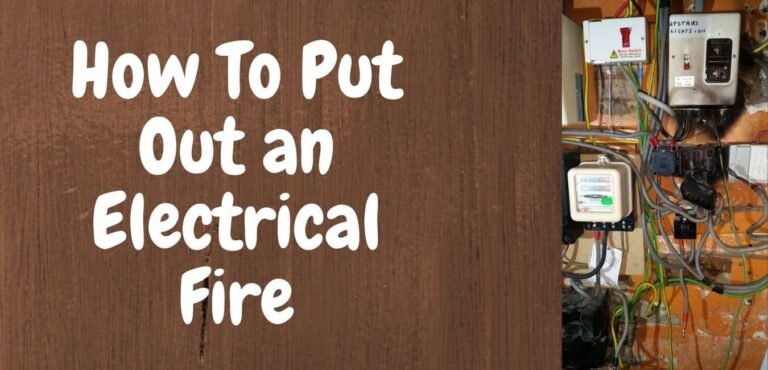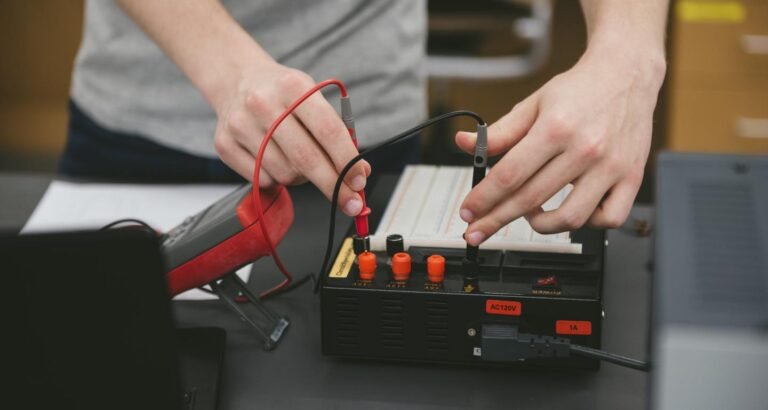Can You Use Duct Tape Instead of Electrical Tape
One often asked question in the field of tape solutions is, “Can you use duct tape instead of electrical tape?” By examining the subtle variances between these two tapes and exploring the possibility of duct tape’s use in electrical applications, this article seeks to shed light on their intricate differences. Let’s explore the tape conundrum to determine whether electrical tape is a must and when duct tape may be used instead, whether you’re a professional or a do-it-yourselfer looking for easy solutions.
A Comparative Analysis of Electrical and Duct Tape
In the tape world, electrical and duct tape are both well-known, yet they differ greatly in their intended use and compositions:
- Differences in Composition
The polyethylene adhesive-coated, robust fabric or mesh backing of duct tape emphasizes its strength and adaptability. On the other hand, electrical tape is designed especially for electrical uses and is made of materials like rubber or vinyl. It offers connections that are secure and insulation. - Firm Intricacies
Although duct tape has an adhesive that is strong and versatile, it does not have the specific insulating qualities of electrical tape. The latter is painstakingly made to fit over electrical cables, guaranteeing durability and adaptability to a variety of environments. - The Ability to Insulate
When it comes to insulating electrical wires, electrical tape stands out because it is well made. Safety is ensured and dangerous short circuits are avoided by its ability to tolerate the heat produced in electrical circumstances. Even though it is strong, duct tape does not provide the specific insulation needed for electrical operations.
Situations in Which Duct Tape Is Useful for Electrical Projects
Even while duct tape can’t completely replace electrical tape, there are several circumstances in which it can:
- Short-Term Fixes
Duct tape may be used as a temporary fix for small repairs in the absence of electrical tape. However, you should be aware of its limits and not depend on duct tape to provide long-term electrical insulation. - Temporary Wire Securing
When a sturdy, long-lasting repair isn’t immediately possible, duct tape might provide a temporary remedy for binding wires together. To guarantee safety and dependability, it must be quickly replaced with the appropriate electrical tape. - Identifying and Labeling
Duct tape may be an easy fix for temporarily tagging or identifying cables. Its ability to attach to surfaces thanks to its adhesive qualities makes it a flexible and quick way to label wires for temporary installations or troubleshooting.
Using Duct Tape for Electrical Tasks: Risks and Best Practices
Although duct tape may provide a temporary fix, it’s important to understand the hazards involved:
- A deficiency in insulation
The main concern is that, as compared to electrical tape, duct tape offers less insulation. Long-term usage may provide safety risks since it cannot provide the same level of protection against heat and electrical conductivity. - Dirt and Orderliness
Adhesive for duct tape may leave behind residue, especially in warm environments. Over time, electrical connections may be hampered by this residue. When users see any symptoms of degradation, they should quickly swap out the duct tape with the appropriate electrical tape. - Fixes’ Transient Nature
Duct tape should only be used as a temporary solution in electrical applications. Understanding its limits enables the prompt replacement of any duct tape temporary patch with the proper materials to maintain dependability and safety.
Key Terms for Well-Informed Tape Selection
Examine the following terms to have a deeper understanding of the types and uses of tape in electrical work:
- Temporary Solutions for Tape
Learn about the situations when one kind of tape may be temporarily substituted for another as you explore the idea of temporary tape solutions. Examine the advantages, disadvantages, and best practices for putting interim patches in place in different applications. - Reliability Issues
Examine the aspects to be considered while using various tape adhesives, paying particular attention to residue, cleanliness, and possible interference with electrical connections. Making educated tape selections is improved by being aware of the subtleties of the adhesive. - Safe Electrical Procedures
Learn about the best practices and principles for safe electrical procedures, which guarantee the dependability and safety of electrical connections. The success of electrical jobs is largely dependent on the choice to prioritize safety while choosing tape.
In conclusion, Choosing the Right Tape for Electrical Solutions
It’s important to recognize that duct tape solutions are just temporary as we wrap up our investigation on their use in place of electrical tape. Duct tape does not have the insulating qualities needed for long-term electrical repair, even if it may provide an instant fix in certain circumstances. Tailoring tape selections to the longevity and dependability of electrical connections is made possible by putting safety first and following best practices.







